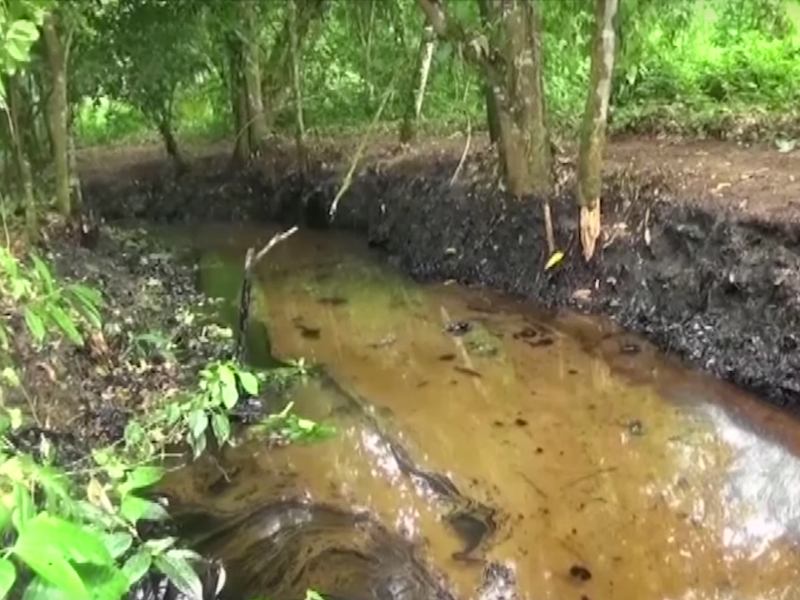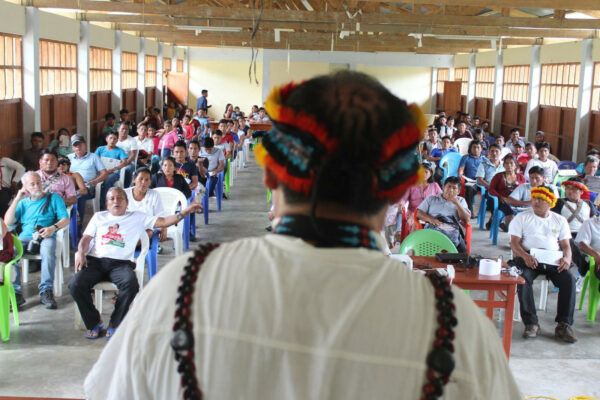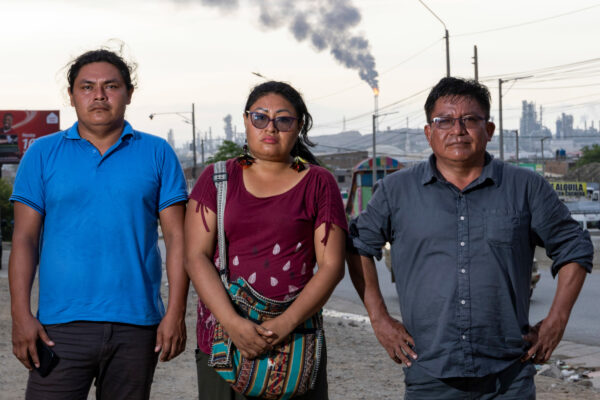
Across Peru, headlines have been dominated by the presidential elections. Deep in the Amazon, however, the ongoing trauma caused by oil pipeline spills seeps on. Almost three months following a 2,000-barrel spill in Chiriaco followed by another just days later near Mayuriaga, indigenous communities continue to confront the daily reality of poisoned water, fish and crops.
Earlier this week, tensions boiled over again as indigenous people from 18 communities peacefully occupied a Petroperu installation near Cashacaño. Their simple demand: that the company stick to their promises to drill water wells.
A Shawi indigenous leader, Román Zumpa, was quoted in an AIDESEP media release saying, “We demand immediate action on our requests if they want us to suspend our protest. We have waited more than three months and we can’t live without water. The government’s declaration of an environmental emergency has just been a salute toward the flag. Until now our families continue to be harmed.”
The mentioned state of environmental emergency – a governmental declaration that implies extra care will be provided to local communities – expires on April 27th. Incidentally, that’s the same day Petroperu will meet with the communities about their demands. The Peruvian government has effectively outsourced the response to the disaster to Petroperu, and their strategy to date has been to promise high and then deliver low.
We must demand that the response to these latest spills be different than in the past. Peruvian human rights groups recently went on a fact-finding mission to Kukama communities who suffered similar oil spills in 2014. The findings were infuriating. According to Peru’s Institute for Legal Defense, as of late March of 2016 “the community of Cuninico continues to suffer from the consequences of the oil spill.” Testimonies of Kukama women point toward ongoing malnutrition of children, lost income from fishing, and the inability to purchase medicine for the illnesses they attribute to the pollution, among other outrages.
Indigenous communities and organizations have issued detailed recommendations for a comprehensive response to the oil spills, including substantial upgrading of the Northern Peruvian Pipeline before it goes back into operations. Sorely lacking has been the political will to authorize and commit resources to carrying out those recommendations. Undoubtedly, they wouldn’t be cheap. But decades-old pipelines that rupture on a regular basis also generate tremendous costs, most of which are born by Amazonian indigenous communities.













